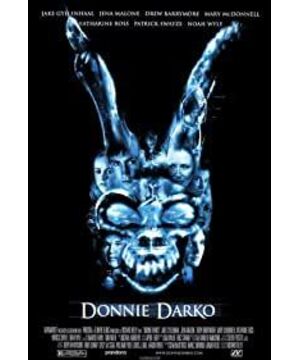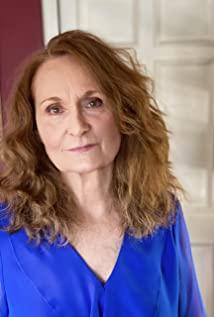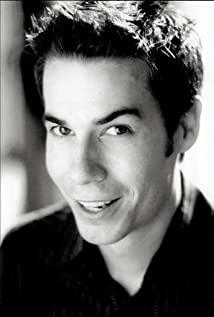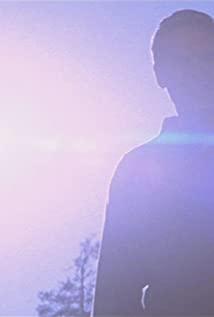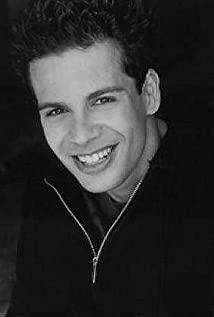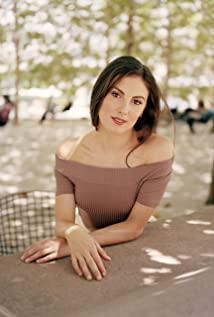"Death Illusion" (formerly known as Donnie Darko) is not a good translation, because what the film describes is by no means a delusion at the end of the day. Contrary to the confusing title, this story shows a strong personality, fascinating science fiction elements, and a unique perspective—the image of a hero who has lost his freedom.
The protagonist Donnie is undoubtedly a heroic character: he survived a catastrophe and became the chosen person, learned the bad news of the end of the world, and became the only character capable of saving the world. It seems that this will be a replica of a Hollywood role-young and immature white men are forced to join the adventure, untie knots, solve problems while growing up, and end the film in a kiss with the heroine.
But Donnie is not such a character. There is a significant difference between him and ordinary heroes: he has no autonomy, or in fact, no freedom of choice.
If orthodox heroes have more or less glorious moments of self-decision, self-growth, and self-salvation, then Donnie's actions to save the world are all under the control of some indescribable force. What’s more sad is that he clearly understands that he is being manipulated, but he cannot change it, adding a touch of absurdity and sadness to the whole work, which also makes Donnie more of a sacrifice than a hero, his life Before the grand destiny of the universe, it evaporates like dew without leaving a word.
But why does this film create a hero who has lost his autonomy?
What is the meaning behind this complicated story of clouds and mountains?
This starts with the setting of this film.
1
Like traditional hero stories, the core story of Donnie Darko is also "problem solving." A hero solves a difficult problem by some means, perhaps searching for the legendary Golden Fleece, or beheading an evil dragon and rescuing a princess. In this film, the mission of the hero Donnie is to save the Tangent Universe on the verge of breaking.
According to the setting in the film, the offline universe is the product of the erroneous operation of the Primary Universe in which humans live. Its symbol is a holy object—a metal object that shouldn’t have appeared in a certain time or place. Airplane engine coming through. Donnie's mission as a hero is to use his authority as a Living Receiver to send the holy artifacts back to the original universe, otherwise the offline universe he lives in will be destroyed.
In order to prompt Donnie to complete the task, the characters around him will become Manipulated, acting under the guidance of some ultimate wisdom. The accused will set up an Ensurance Trap, leaving the receiver with no choice but to complete the recovery of the holy relic, even if it may mean the receiver's death. There are two most important accused: Frank, the bunny who was born as the dead controller, and Ross, who is the live controller.
As the name suggests, a death controller is a person who has died in the offline universe. They have powerful permissions and can communicate with recipients through hallucinations and dreams. We can find that Frank used the appearance of a bunny man to avoid the bad luck of being crushed by the engine, and constantly guide him to recognize his identity, pass on the knowledge of time travel, and even let Donnie kill the future self so that he can become a master. The person guides its path to awakening.
Under Frank's guidance, Donnie's psychological changes have produced huge fluctuations, not only the accumulated pressure, fear and tension, but also the strong anger and rebellion towards the world around him. Frank hinted that Donnie flooded the school, destroyed the statue, and burned the speaker's house, not only to pave the way for the final outcome, but also to the awakening and release of Donnie's inner energy as a hero and savior.
But the relationship between Frank and Donnie is obviously unequal. In the first half of the film, Donnie is more on the oppressed side: we can see him whimpering at the counselor and Frank threatening to yield to him. If the plot continues to develop in this way, Donnie will become a tool under Frank's control and forced to complete the mission, but may have a nervous breakdown before completing the mission to save the world.
But the fact that things did not develop like this lies in another key figure-his girlfriend Ross as the living controller.
Frank's function is completely performed after death, and the intersection between him and Donnie during his lifetime is extremely small. On the contrary, Ross's function is while she is alive. If Frank’s role is to awaken Donnie’s divine and inhuman side, and give him the knowledge, ability, and courage to manipulate the divine power to send away holy objects, then Ross’s function is to become his connection to the secular world and to give his behavior. Human motivation.
In other words, the series of events initiated by Frank gave Donnie the ability to save the world, but Ross is the reason itself to promote the salvation. The love and fall in love between her and Donnie gave the cynical hero comfort and nostalgia, and became the reason why he did not want to give up the world. At the end of the film, when Ross died, Donnie found out where he was:
He faces a double choice-either destroy with the world or sacrifice himself and let his lover survive.
Here, Ross's death became part of the manipulation of Donnie-if he refuses to return the holy artifact, he will no longer be able to change the fate of his lover's death, let alone save his relatives on the plane. This interweaves with everything before and becomes the ultimate guide trap, leaving Donnie in a situation where he has no choice.
From another perspective, it seems that the love between Donnie and Ross changed the fate of the universe. This kind of plot is very similar to the world system in Japanese works: the love of teenagers is connected with major issues such as the fate of the world. For example, the love of the male and female protagonist in "Your Name" changed the fate of the village when the meteorite fell. In "The Gate of Destiny Stone" Choices about love and the future of the world, etc.
But in fact, the setting in Donnie Darko is far more cruel: as stated in the setting book "The Upanishads of Time Travel", all the accused will act at all costs in order not to be eliminated. This means that even if it is love and family affection, it may only be a channel for the living controller to protect himself and promote the return of the sacred instrument, which is a move to push Donnie into the final trap. To be more honest, whether this kind of love really exists may also be a mystery.
This also makes the final ending full of disillusionment and sadness: Donnie is a rebel, fighting to control his own destiny and make his own voice. But his rebellion itself is also part of a "grand plan", and even his love, his anger, his fear, everything is under the control of this ultimate plan, everything is for him to finally give up his life to save the world The moment of service. In the final ending, Donnie who sent away the holy relic was smashed to death by the falling engine. His ridiculous laughter before his death has a profound meaning, perhaps a mockery of his own absurd destiny, the gratification of the salvation of his loved ones, the intense boredom of the immutable destiny and the ununderstood world, and the comfort of being finally free from it. .
2
So what is the most unique characteristic of Donnie Darko as a hero?
It is a life controlled step by step, and a sense of powerlessness and disillusionment with fate.
The traditional hero image is active and promising, and the spirit of challenging fate is difficult to take root in this film-Donnie is smart, sharp and passionate, but the more he observes and explores, the more he finds that he cannot escape the control of fate, even if he can Observing the future, on the contrary, it will be manipulated by the future, and the smallness of mankind in front of the endless universe is unobstructed.
Even compared with the classical Greek tragedies, the tone of the film is more pessimistic: even if the heroes in classical tragedies end in misfortune, they can often be sublimated in another way, that is, the social recognition, reputation, memorial and mercy they have obtained. , Can be remembered in various ways. As a hero, Donnie sacrificed himself, but he was not accepted and recognized by the society-all his achievements in the offline universe were erased, and he became an unfortunate road man crushed to death by the engine, only remaining in the memory of a few people. In the wreckage. With the Mad World full of world-weariness, this story was drawn to an end. Donnie's great achievements disappeared in the world, as if it had never existed.
The boredom and rebellion of real life, the strong agnostic elements and the nihilistic values that cover the whole film make this film more like a modernist work, full of doubts and contradictions about modern civilization and the essence of life. . The hero no longer believes in faith, but wants to work hard to master his own destiny and explore the truth on his own. Nonetheless, everything is still in vain. But this negative story perfectly shows a fascinating nihilism aesthetic. Since the decline of the avant-garde, success stories of this style have become increasingly rare.
3
In addition, from the perspective of sci-fi, the sci-fi concept of this film is concise and exquisite, yet full of white space and mystery. The competitiveness of its science fiction connotation is reflected in its transferability. When I saw "Time Travel Upanishads", my first thought was that this is also a guide to writing fictional works:
Just as heroes are arranged to save the universe, novels and scripts also require characters to complete tasks;
In the offline universe, the accused, controlled by the power of the underworld, promotes the actions of the hero in various ways, for good or for bad. We also manipulate supporting characters in the novel to influence the protagonist: for example, let the villain take the protagonist. Push down the cliff to get him a martial arts secret, or kill the protagonist's family and force him to embark on a journey of revenge and wandering;
All kinds of dead and alive accused will set up guide traps to force heroes to make choices. We will also block all kinds of retreats, push our characters to the edge of the cliff, and then say to him: Okay, the foreshadowing has been buried, emotions It has been brewing and the motivation is perfect. Now it's up to you to choose between the only two precious things left. Just as Donnie has to choose between his own life and the world and the destiny of his lover, we also like to see the character lose the most important thing, just like the self-dedication of two lovers in "The Gift of the Magi", because of the ability to make a choice. Shocking.
From the perspective of the tortured character, the author is undoubtedly cruel, but compared with the author in a higher dimension, the character under the pen has no human rights at all. When they realize this fact, in the face of a more determined life, will they laugh wildly like Donnie? From the perspective of creatures of higher latitudes, or the laws of the universe called destiny and gods, are our roles the same as those in the books?
For this question, Protegla’s answer may be quite appropriate: As for the gods, I am not sure that they exist or that they do not exist, nor dare to say what they look like; because there are many things that hinder our exact knowledge, such as questions The obscurity and the shortness of life.
And Confucius' answer is very similar: If you fail to deal with others, how can you deal with ghosts? Unknown life, how can you know death?
In other words, the reason why we do not explore the existence of high-dimensional beings and gods is because we do not have such means. Why not invest resources in a known and controllable secular society? With such a pragmatic spirit, living in a human society that can control one's own destiny is not a kind of happiness.
And Donnie's tragedy lies in the fact that he was given knowledge beyond human beings, and gradually lost the freedom of choice while gaining insight into fate step by step, and finally ushered in the unavoidable end. In the collision with the grand destiny, the individual's independence is lost like mist, and the indescribable horror remaining in the limited blank space-perhaps this is the most creepy part of the film.
First published in station B column:
https://www.bilibili.com/read/cv6651843
View more about Donnie Darko reviews


